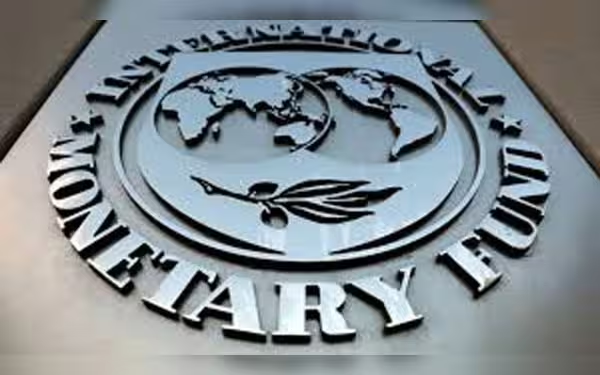Saturday, November 16, 2024 07:49 PM
Pakistan Government, IMF Agree on No Mini-Budget
- No mini-budget or new oil taxes agreed upon.
- IMF satisfied with Pakistan's tax-to-GDP ratio improvement.
- FBR to initiate tax collection on agricultural income next year.
 Image Credits: nation_pk
Image Credits: nation_pkPakistan and IMF agree on no mini-budget or new oil taxes, focusing on tax collection and economic stability.
In a significant development for Pakistan's economy, the government and the International Monetary Fund (IMF) have reached a consensus that no mini-budget will be introduced, nor will there be any additional taxes imposed on oil products. This agreement comes as part of ongoing discussions aimed at ensuring that the Federal Board of Revenue (FBR) meets its annual tax collection targets for the current fiscal year.
The assurance from the government indicates a commitment to achieving these targets without resorting to new tax measures. This decision is crucial as it reflects the government's strategy to stabilize the economy while maintaining fiscal discipline. The IMF's staff is currently in Pakistan to evaluate recent economic developments and the performance of the Extended Fund Facility (EFF) program.
It is important to note that this mission is not part of the first review under the $7 billion EFF, which is scheduled for no earlier than the first quarter of 2025. During this visit, the IMF team is engaging in technical sessions with various stakeholders, including the FBR, Power and Petroleum Divisions, and regulatory authorities in the energy sector. These discussions are expected to conclude by November 15.
For Pakistan to qualify for the disbursement of a second installment exceeding $1 billion by March 15, 2025, a formal review based on the economic performance by the end of December must take place. An official from the Ministry of Finance has indicated that the IMF is satisfied with Pakistan's recent economic performance, particularly noting an increase in the tax-to-GDP ratio from 8.8 percent to 10.3 percent. This 1.5 percent improvement is viewed as a positive sign of the country’s fiscal policies.
Furthermore, the FBR has announced plans to initiate tax collection on agricultural income next year. This move is seen as a step towards broadening the tax base and ensuring sustainable revenue generation in the long term. By expanding the tax net, the government aims to enhance its financial resources, which is essential for funding public services and infrastructure development.
The agreement between the Pakistani government and the IMF not to introduce a mini-budget or impose new taxes on oil products is a strategic decision aimed at stabilizing the economy. As the government works towards achieving its tax collection targets, the focus on broadening the tax base, particularly through agricultural income, signals a proactive approach to fiscal management. This development not only reflects the government's commitment to economic stability but also highlights the importance of collaboration with international financial institutions in navigating the challenges faced by the economy.













